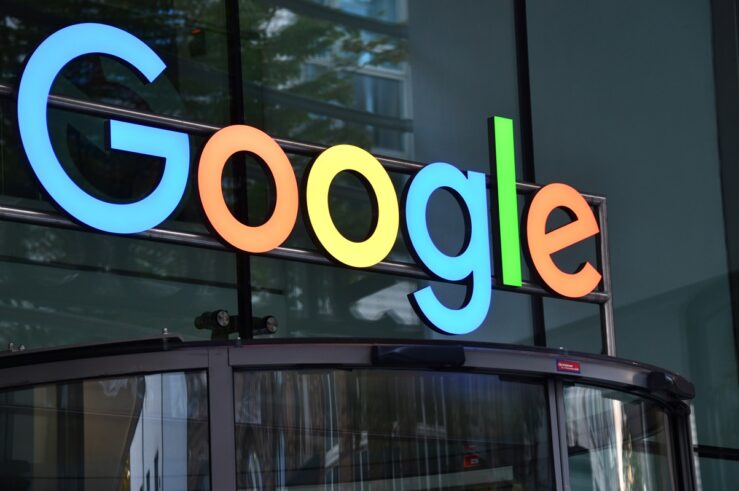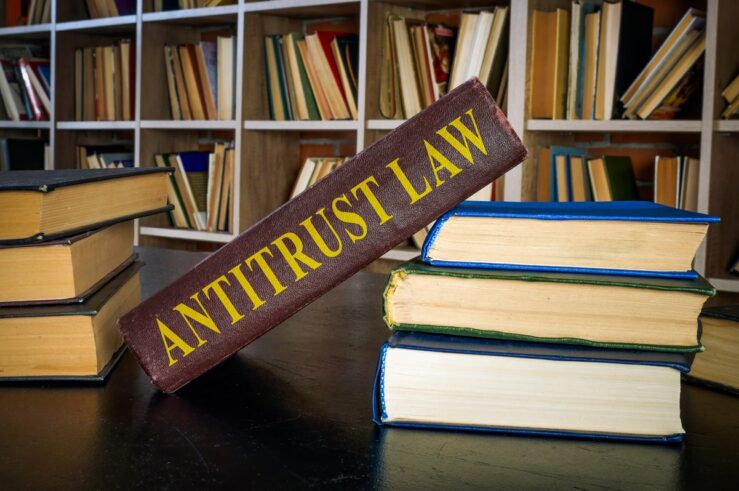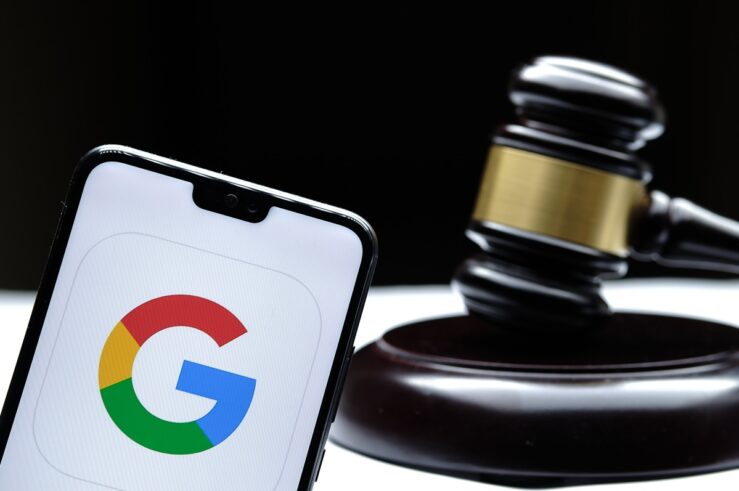Showing results for: “FTC policy statement unfair methods of competition”
Google Monopolization Ruling May Not Hold Up On Appeal
In an Aug. 5 order, the U.S. District Court for the District of Columbia held that Google engaged in illegal monopolization of internet “general search services” and “general text search advertising.” This decision, dubbed “an historic win for the American people” by U.S. Attorney General Merrick Garland, may face tough sledding on appeal. The very ... Google Monopolization Ruling May Not Hold Up On Appeal
Vacatur’s All I Ever Wanted
Yep, more about noncompetes. I’ve been at this a bit. I’m aware. Just last week, and then again here, here, here, here, and here at Truth on the Market; here in a more formal journal article; and here with my International Center for Law & Economics (ICLE) colleagues and scholars of law and economics. Maybe ... Vacatur’s All I Ever Wanted
ICLE and CEI Submit Amicus Brief Arguing the FCC’s Net Neutrality Order Is Unlawful
If you’ve been keeping up with the machinations of the Federal Communications Commission’s (FCC) latest attempt to regulate broadband under Title II of the Communications Act, you know that providers are challenging the rules in the 6th U.S. Circuit Court of Appeals. The court has put that case on the fast track. Earlier this week, ... ICLE and CEI Submit Amicus Brief Arguing the FCC’s Net Neutrality Order Is Unlawful
Some Thoughts on the Google Decision, for Those Who Haven’t ‘Binged’ It Yet
Readers of Truth on the Market are no doubt aware of Judge Amit Mehta’s Aug. 5 decision in the Google search antitrust case—that is, his 286-page memorandum and order finding Google liable for violating Section 2 of the Sherman Act (specifically, illegal monopoly maintenance in two markets: general search services and general text advertising). Comments ... Some Thoughts on the Google Decision, for Those Who Haven’t ‘Binged’ It Yet
Antitrust at the Agencies: Just When I Thought I Was Out Edition
Noncompetes have been a subject of much interest here at Truth on the Market (see Alden Abbott, Brian Albrecht, Corbin Barthold, Gus Hurwitz, Richard Pierce Jr., and your humble-if-obsessive scribe here, here, here, here, and here). They’re also something I’ve studied independently—first, at the Federal Trade Commission (FTC) and then, for example, here. I was ... Antitrust at the Agencies: Just When I Thought I Was Out Edition
Europe’s Latest Antitrust Policy Pronouncement Threatens Innovation
A newly released draft of the European Union’s proposed monopolization guidelines suggest they could pose a new threat to innovative business practices that promote high-tech economic growth. The EU should scrap the draft and U.S. antitrust enforcers should likewise reject its approach. Overregulation Harms EU Economic Growth and Innovation The United States, not Europe, has ... Europe’s Latest Antitrust Policy Pronouncement Threatens Innovation
Don’t Believe the Hype (on Competition and AI)
As in the Public Enemy song that gives this post its title, the hype about alleged competition risks in the artificial intelligence (AI) “market” is a sequel—and not a good one—to the hyperbolic and dystopian view that has informed several recent antitrust-policy proposals and demands for tougher enforcement of competition laws, particularly in digital markets. ... Don’t Believe the Hype (on Competition and AI)
The Cookie Plan Crumbles: Stuck in the Middle with Google
Google recently announced that it has changed its plans to phase out third-party cookies in the Chrome web browser. The company had previously planned to disable third-party cookies in Chrome, a change supported by many in the privacy-stakeholder community, but which was met with criticism from the adtech industry and competition lawyers. Google’s new plans ... The Cookie Plan Crumbles: Stuck in the Middle with Google
Judge Mehta Got It Wrong in the Google Case
U.S. District Court Judge Amit Mehta ruled in an Aug. 5 order that Google violated antitrust law by improperly maintaining a monopoly. The case focused on “general search engines” (GSEs) used for internet search, and the impropriety was the manner through which Google secured distribution in partnering with internet-browser developers, mobile-device manufacturers, and wireless carriers. ... Judge Mehta Got It Wrong in the Google Case
The $14 Billion Fumble
Even in the era of a Federal Trade Commission (FTC) led by Lina Khan, antitrust law can be a pretty hum-drum affair, consumed with minutiae about relevant markets, market shares, the Herfindahl-Hirschman Index (HHI), unilateral effects, coordinated effects, and possible efficiencies. Things get just a bit more interesting when there are allegations of a conspiracy ... The $14 Billion Fumble
The FTC Case Against PBM Rebates
About a month ago, the Wall Street Journal reported that the Federal Trade Commission (FTC) was preparing an antitrust suit against the nation’s three largest pharmaceutical benefit managers (PBMs), the intermediaries who negotiate drug prices on behalf of insurers and who manage benefits for nearly nine in 10 insured Americans. This development followed a two-year ... The FTC Case Against PBM Rebates
U.S. Antitrust Enforcers Should Reject AI Interventionism
The U.S. Justice Department (DOJ) and Federal Trade Commission (FTC), in tandem with their fellow competition-law enforcers from Europe (the European Commission) and the United Kingdom (the Competition and Markets Authority, or CMA), issued a joint statement July 23 titled “Joint Statement on Competition in Generative AI Foundation Models and AI Products.” This joint statement ... U.S. Antitrust Enforcers Should Reject AI Interventionism
















